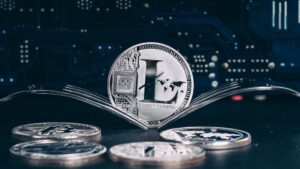In a widely anticipated interview at Wednesday’s Dealbook Summit, Sam Bankman-Fried attempted to stir sympathies after defrauding users and creditors of billions of Dollars.
Since the scandalous FTX racket unravelled on Nov. 7th, many news organisations have failed to give readers a straightforward assessment of what exactly happened, either downplaying or soft-talking SBF’s intent and culpability.
Wednesday’s testimony at the DealBook Summit appeared to be more of the same.
The New York Times’ interviewer and moderator, Andrew Ross Sorkin, asked Bankman-Fried a series of soft-ball questions to which SBF answered in an apologetic tone. SBF admitted that he ‘screwed up‘ and made major mistakes, saying he should have focused on risk management and protecting customers.
Throughout the interview, the disgraced founder suggested even more incriminating statements, which can be used against him in legal proceedings. Crypto lawyer Jeremy Hogan, Partner at Hogan & Hogan said that the ‘light cross-examination‘ of Bankman-Fried at the DealBook Summit has already returned ‘at least 3 incriminating statements so far.’
SBF is getting a light cross-examination at the NYT/Dealbook Summit and has made at least 3 incriminating statements so far.
Why are his lawyers (or parents) letting him do this?? pic.twitter.com/Nd0poutAA0
— Jeremy Hogan (@attorneyjeremy1) November 30, 2022
The testimony at the summit discussed the commingling of user funds to cover loans, to which Bankman Fried said he ‘didn’t know exactly what was going on at Alameda.’ SBF then recognised it was still his duty as FTX CEO to ‘make sure I was doing diligence.’
“A lot of these are things that I’ve learned over the last month that I learned […] I mark that as a pretty big oversight that I wasn’t more aware of,” he said.
“I feel embarrassed to have made a mistake. I underestimated the scale of a market crash. I didn’t anticipate how correlated things could be.“
When Andrew asked: ‘doesn’t that just mean you didn’t want to get caught?‘, Sam replied with ‘That’s not how I viewed it.‘
Sam attempted to frame his actions as mismanagement and accounting errors due to scale, rather than deliberate fraud. He attempted to rationalise his actions in real time, which came off as denial about the grievous crimes he has committed. This may be part of another elaborate play by SBF.
When asked about his future and whether he had any criminal liability, Bankman-Fried stuttered, ‘I don’t personally think that…that’s not what I’m focusing on.’
‘There’s going to be a time and place to think about myself and my future,’ Bankman-Fried said. ‘I’ve had a bad month. Right now, that’s not what matters here.’
The full interview is available here.
A neo liberal status quo
The not-so-subtle attempt to stir sympathies of viewers is indicative of a politicised status quo which veils its deliberate attempts to downplay SBF’s fraudulent behaviour as unbiased reporting. In closing, Andrew Sorkin even thanked SBF for ‘engaging… in truth‘, after which the audience applauded. Clearly, neither creditors nor users were invited.
Max clown world.
They’re applauding him. pic.twitter.com/oQI9iJ67TW
— Dylan LeClair 🟠 (@DylanLeClair_) December 1, 2022
Prior to the interview, there was no shortage of soft coverage about the FTX scandal.
Bear in mind, it is clear in the eyes of everyone except regulators and journalists that there was a conscious effort to steal money from customers and investors. This is why a New York Times interview was widely derided for framing FTX’s collapse as a result of mismanagement instead of misconduct – a theme echoed in the DealBook interview as well. Another article on the Wall Street Journal lamented the loss of charitable donations, which incidentally propped up SBF’s false philanthropic persona.
Besides attempts to white-wash Sam’s entanglements with US Democratic party, news outlets have even described what happened to FTX as a ‘bank run’, or a ‘run on deposits’, all the while SBF continues to insist that the company was simply disorganised. Many news outlets have parroted this counter-factual information without a second thought.
This is a deliberate attempt to obfuscate the core issue: the misuse of billions of Dollars in customer funds (stealing).
Conscious fraud
In a Coindesk op-ed, David Z. Morris underlined the scathing ties between FTX exchange and hedge-fund Alameda Research revealed in bankruptcy proceedings. Specifically, Alameda Research had a special status as a user on FTX: a ‘secret exemption’ from the platform’s liquidation and margin trading rules.
This means that bad loans which are not properly collateralised are not obliged to add additional collateral to maintain a margin position. The technical exemption does not simply occur haphazardly – it is done consciously and deliberately, as is the transfer of funds to a highly-levered hedge fund.
Sam Bankman-Fried crafted a nerdy, philanthropic image that’s conceptually difficult to square with deliberate thievery. His knowledge of crypto jargon and ‘finance-speak’ propelled his social media influence among traders and investors, and his donations were large enough to avoid scrutiny.
But nuanced fraud is fraud nonetheless.
Since the con-job became known to the public, SBF has continued to muddy the waters through disingenuous chats, letters, tweets (some deleted) and interviews. This is nothing but a deliberate attempt to craft an image of a well-intentioned but ultimately naïve individual who couldn’t handle the big league. It is an attempt to stir sympathies.
This is Sam Bankman-Fried – cold, calculating and insidious till the end.
Join the telegram channel for updates, charts, ideas and deals.
Did you like the article? Share it!


